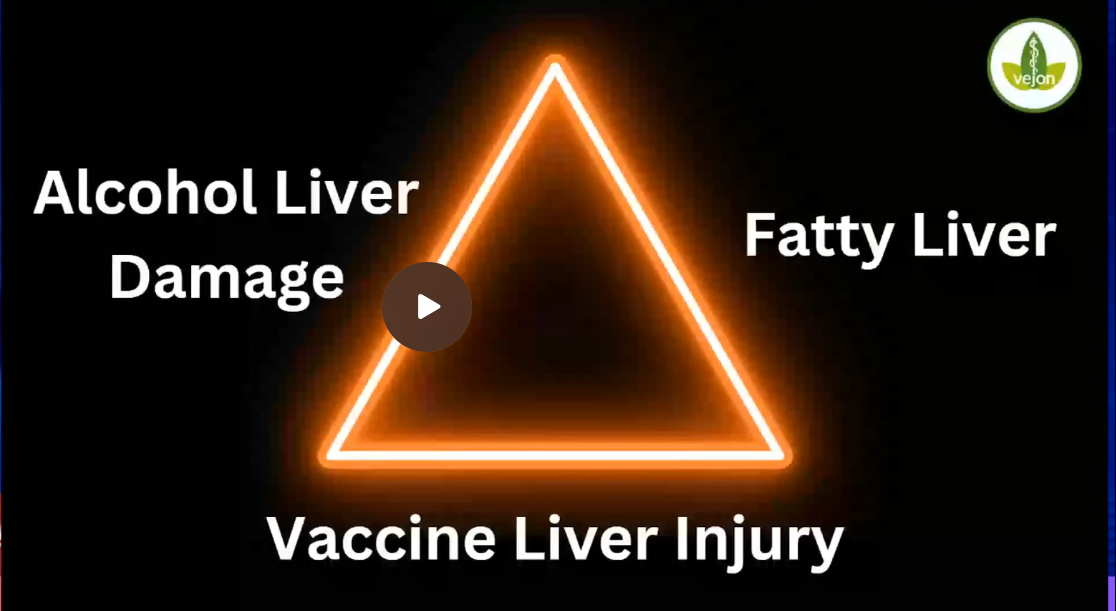Alcohol's DARK SECRET: questioning the timing of the latest warnings
-
@Mauritio looked into that a few days ago because great outcomes in rodents but would be very high amounts for a human going by effects,
(rodents are probably a lot more resilient to ethanol than humans, i think they're better adapted probably because of eating high amounts of fermented fruit on the ground vs primates who pick a lot with smaller ethanol amounts)
ray said 1 tea spoon for protective effects (diluted, ~3ml - 4ml) (cognitive protection on lower end brain atrophy on higher
full reply at the bottom https://www.reddit.com/r/raypeat/comments/1hrc3pf/comment/m5u70mo/
-
@cs3000 interesting but what about the antioxidant effect and the increase in CO2?don't you think that in humans smaller those would have the same Effect. and by smaller those i mean more than a Tablespoon.
-
@Mauritio might tip over there and the toxicity / inflammatory reactions could shut down the metabolic effect, its even different between species in rodents (or different in the brain alcohol is metabolised different there i think),
e.g 1 of the studies showed 0.25ml/kg fed to rats boosted metabolism in their brains, but going to 1ml/kg didnt boost metabolism & lowered brain metabolism below controls. maybe someone's tested low amounts like 5ml on humans would be cool if there was similar metabolic effect co2 production etc~18ml ethanol didnt show antioxidant capacity in humans (beer didnt give much effect either) https://www.sciencedirect.com/science/article/abs/pii/S0955286399000777
(ethanol stimulated polyphenol absorption. but beer polyphenols have estrogenic effect from the hops) -
@cs3000 I saw one study with seven point five percent of ethanol, that did have negative outcomes.
So back to one tsp a day it is. I think a higher amount might be beneficial if it was spread out over the day as in the mice/ rats studies. That way you might get the continous antioxidant benefits. Maybe a few tsp's in your water bottle and then sip throughout the day.
-
@Mauritio might give it a go on the low end
at least a big part of the effect of those mice studies looks like from increasing their movement a lot,
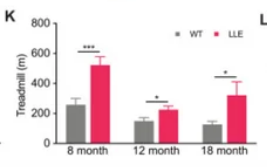
so human rodent differences aside if u arent suddenly moving a lot more from it i dont think the effects gonna be similar. maybe the protective effect on the low end could give some of the gains there outside of the movement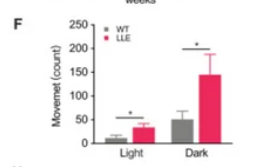
With the theoretical maximal oxidation rate of alcohol being 0.1 g·kg−1·h−1 of lean body mass (Schutz 2000), it is unclear to what extent alcohol ingestion prior to exercise can alter exercising substrate use. https://academic.oup.com/alcalc/article/59/2/agad079/7425522
-
@cs3000 yes me too.
I saw that too. Interesting.
Anecdotally i can say even small amount of alcohol seems to be very helpful when I have an incoming cold.
-
@Mauritio i found a study matching nearer Peats dose, shows it very effective for giving a protective effect in stress at ~ 1ml human amount 0.05ml/kg rats. so i guess that amount would be helpful like u mentioned with an oncoming cold (helpful to prevent inflammation & oxidative stress extremes)
https://onlinelibrary.wiley.com/doi/10.1155/2021/4475968
- We found that low-dose alcohol (0.05 g/kg, i.p.) ameliorated {acute stress} AS-induced renal dysfunction and histological damage. Low-dose alcohol also attenuated AS-induced oxidative stress and inflammation, presenting as reduced malondialdehyde and hydrogen peroxide formation, increased superoxide dismutase and glutathione activity, and decreased myeloperoxidase, interleukin-6, interleukin-1β, and monocyte chemoattractant protein-1 levels
Moreover, low-dose alcohol alleviated AS-induced apoptosis by downregulating Bax and cleaved caspase 3 protein expression
Stopped the stress induced cell death, h2o2 oxidative stress increase, neutrophil infiltration, in very "small" amounts,
pretty good aymaybe small amounts diluted could be good for colitis

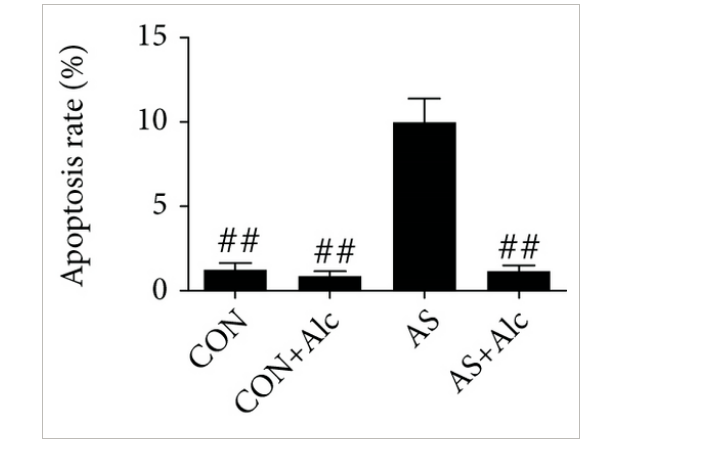
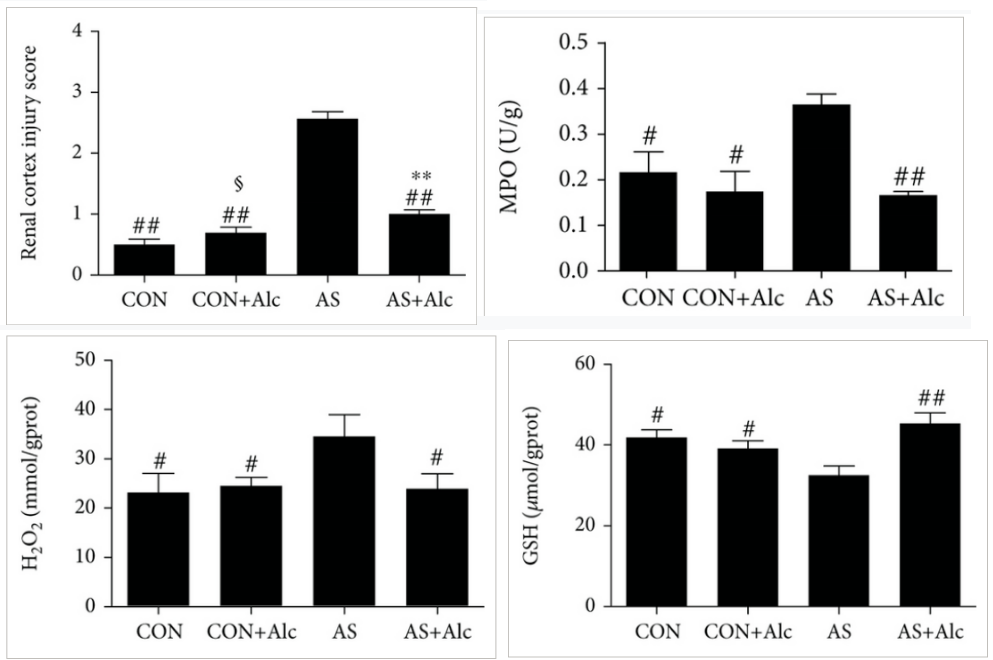
Crossing open field test (exploration )
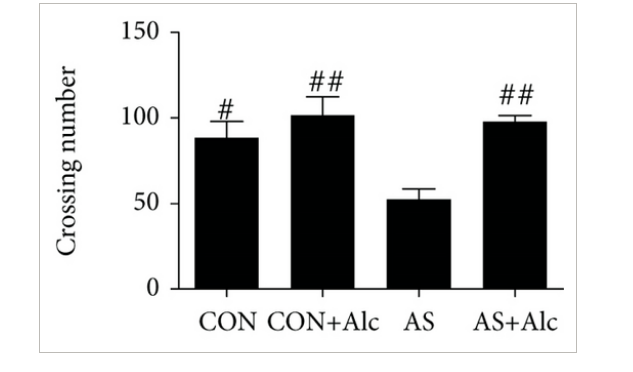
0.7ml/kg in mice (~5ml <10ml human but maybe best to go a bit lower closer to 1st study adjusting for mice ability to react less to it)
gave peak protective effect in stroke
1.4ml/kg started losing the effect . In mice , who could be more resilient to overdoing ethanol
https://www.frontiersin.org/journals/cellular-neuroscience/articles/10.3389/fncel.2019.00006/full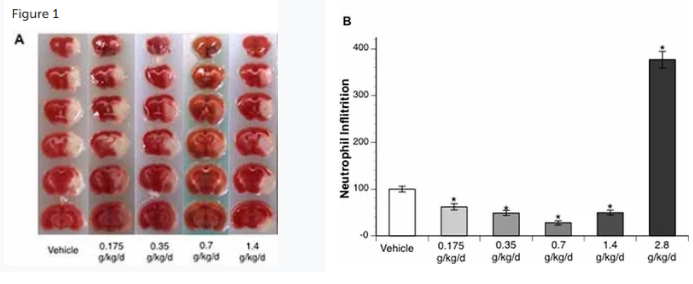
- We found that low-dose alcohol (0.05 g/kg, i.p.) ameliorated {acute stress} AS-induced renal dysfunction and histological damage. Low-dose alcohol also attenuated AS-induced oxidative stress and inflammation, presenting as reduced malondialdehyde and hydrogen peroxide formation, increased superoxide dismutase and glutathione activity, and decreased myeloperoxidase, interleukin-6, interleukin-1β, and monocyte chemoattractant protein-1 levels
-
@cs3000 Interesting. Peat right again I guess.
Unfortunately the other high dose study is circulating on X and people use it as an excuse to drink several cocktails a day and feel " fine".Las time I took it it gave me bile flow issues , subjectively it was something which felt like choelstasis.
-
@DavidPS the Longevity Project book mentions studies that found high fat (including mufa/pufa), sodium, and alcohol did not have negative effects on people in areas with high social trust and community. Blue zones essentially. I'm thinking current attitudes towards alcohol are very negative and painful, not like those 50+ years ago or in these tight knit areas.
-
@Corngold said in Alcohol's DARK SECRET: questioning the timing of the latest warnings:
@DavidPS the Longevity Project book mentions studies that found high fat (including mufa/pufa), sodium, and alcohol did not have negative effects on people in areas with high social trust and community. Blue zones essentially. I'm thinking current attitudes towards alcohol are very negative and painful, not like those 50+ years ago or in these tight knit areas.
Alcohol in degenerate affluent countries is probably very bad quality, as quantity is seen as the more important factor. There must be something very wrong with cheap tequila that gives you a hangover when more expensive stuff won't.
I imagine the red wine the Sardinian Blue Zoners were drinking everyday was ten times better than the swill most people drink.
The Blue Zone thing is interesting to me, not because of the alleged centenarians but the mass fraud of the media
BBC 2008:
In stark contrast to Okinawans, the residents of Ovodda don't count calories and meat is very firmly on the menu, while tofu and soya are not.
http://news.bbc.co.uk/2/hi/uk_news/magazine/7250675.stmBBC 2020:
Like the food in Okinawa and Sardinia, the diet in Ikaria is notably low in meat and high in fresh fruit and vegetables. “They don’t even eat as much fish as you might expect for people living on an island,” says Chrysohoou.
https://www.bbc.com/future/article/20200512-the-ingredients-that-hold-the-secret-to-a-long-lifehttps://stan-heretic.blogspot.com/2009/10/beware-of-okinawa-diet-scam.html
-
The bullshit corporation is quite an educational outfit hey Hando.
-
@ThinPicking indeed sir
